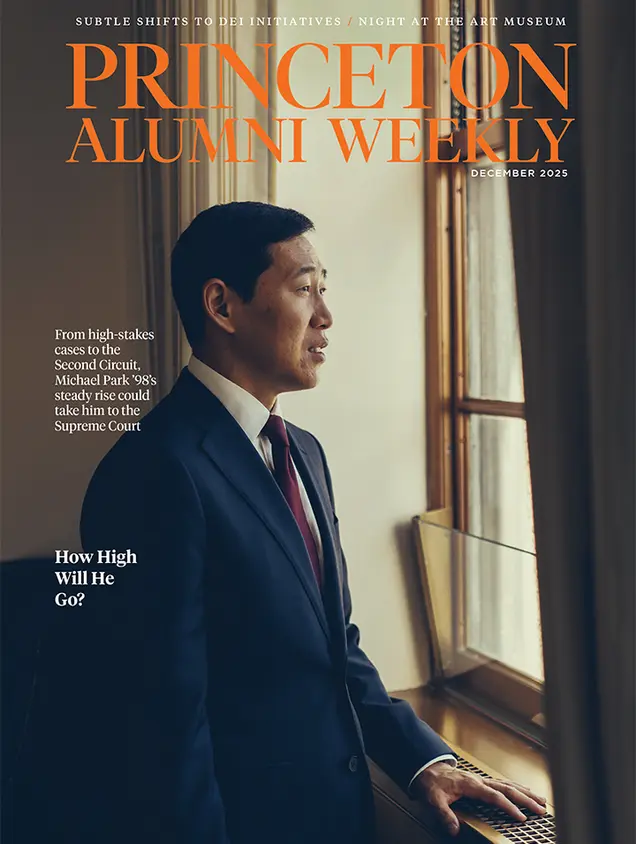David Gordon McAneny ’41
Dave died peacefully Oct. 1, 2005, at home in Granada Hills, Calif.
A native New Yorker, he was the son of the late Marjorie and George McAneny. Dave's father was president of the Borough of Manhattan from 1910 to 1913 and executive manager of The New York Times from 1916 to 1921. Dave prepared at Riverdale Country School, and at Princeton he majored in music, sang in the Glee Club, and joined Charter. Among his roommates were Walt Goudale, Bill Hamler, and his cherished friend, Irv Walsh.
After serving in the Army in World War II, Dave's career was in advertising, where he wrote print, radio, and television commercials for national clients. His work won several awards, including a Cleo in 1963. An accomplished musician, he played piano for live radio and TV shows including Kukla, Fran, and Ollie. He played for the first television demonstration at the 1939 World's Fair in New York. Dave and Larry Ackard were also the star piano duo at many a '41 reunion!
Dave is survived by his children, Nancy Voll, Susan Joyce, and David J. McAneny; nine grandchildren; and seven great-grandchildren. His yearbook quote was: "My outlook on life? You look out on life, and there it is."
The Class of 1941
Paw in print

December 2025
Judge Michael Park ’98; shifts in DEI initiatives; a night at the new art museum.


No responses yet